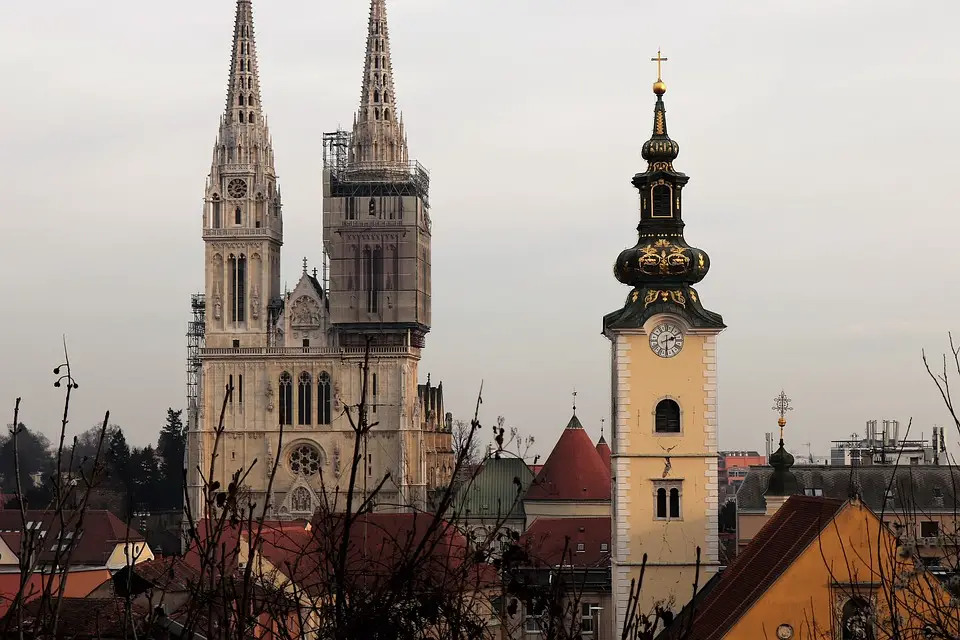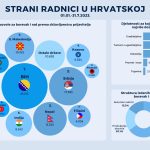As Darko Bicak/Poslovni Dnevnik writes, the Croatian ICT industry and the country’s production of machinery and equipment could do well at the moment, as large companies are looking for opportunities to shorten their supply chains, according to the Boston Consulting Group’s (BCG) analysis entitled “Protectionism, pandemic, war and the future of trade”.
It was also emphasised that standard trade patterns will change, but not only as a result of the war in Ukraine, but also due to the decreasing reliance of Western countries on trade with China and the rise of economic blocs such as the Association of Southeast Asian Nations (ASEAN), assesses the BCG analysis.
Energy will be the sector that will be most affected by the slowdown in global trade, and it has been estimated that from 2023 to 2031, the European Union (EU) will increase energy imports from the USA by 338 billion dollars, and a huge expansion will also take place in trade with ASEAN countries – Africa, the Middle East and India.
BCG also estimates that trade between the EU and Russia will decline sharply as Western Europe seeks to reduce its dependence on Russian oil and gas. As a result, Russia will try to shift its trade flows from Europe to other regions, especially to China and India. Like the US, the EU has also taken an increasingly cautious stance towards China in general.
The growth of mutual trade is slowing down, to a modest rate of 2.3 percent by the year 2031, and it will amount to 72 billion dollars. Tomislav Corak, a partner within BCG, pointed out that we’re currently witnessing a time of tectonic changes in global trade. BCG predicts that trade will recover from the slowdown caused by the coronavirus pandemic and grow at a rate of 2.3 percent per year, but it will no longer be in the form of the trade we’ve known so well for the past forty years.
Over the next decade or so, global trade will become more regionalised, mostly under the influence of geopolitical forces,” believes Corak, adding that Croatia is well positioned to take advantage of these changes.
“Membership of the EU’s internal market enables Croatia to trade under the same conditions as the other 26 member states, which already represent more than 70 percent of Croatian foreign trade. It’s problematic that the greater part of this exchange falls on the import of lower-value goods and services, which doesn’t make Croatia very competitive After the introduction of the euro, the currency risk for Croatia in foreign trade exchange with EU member states finally disappeared, which opens up huge opportunities for attracting direct foreign investments necessary for the transformation of the economy and the development of activities with higher added value.
However, Croatia will have to compete with Slovakia and Slovenia in that regard, which have already been identified by global companies as countries where they can diversify their supply chains. In this way, global companies will continue to reduce their dependence on China, while at the same time building production capacities for the entire EU market,” Corak believes.
In this context, according to BCG, Croatia and the Croatian ICT industry has significant opportunities before it when it comes to development in the production of machinery and equipment, because it has knowledge and experience in engineering such technologies. However, this will require significant investments in infrastructure and professional knowledge and skills, as well as smart policies to attract foreign and retain Croatian IT experts.
In their analysis, the consultants estimated that the consequence of the slowdown in trade between Western countries with Russia and China will be an increase in trade between northern and southern regions, as these countries will find even more new trade partners in Africa, South America and Southeast Asia.
The clear winners, according to BCG, are the ASEAN countries, which are likely to see new trade opportunities, especially with China, Japan, the US and the EU as a bloc. According to them, they will increase trade by more than a thousand billion dollars from 2023 to 2031.
For more, make sure to check out our news section.










